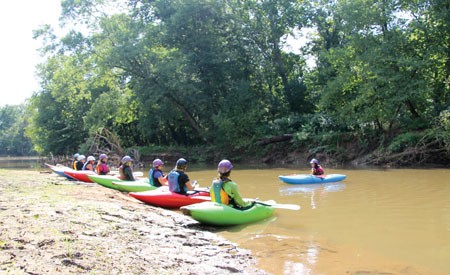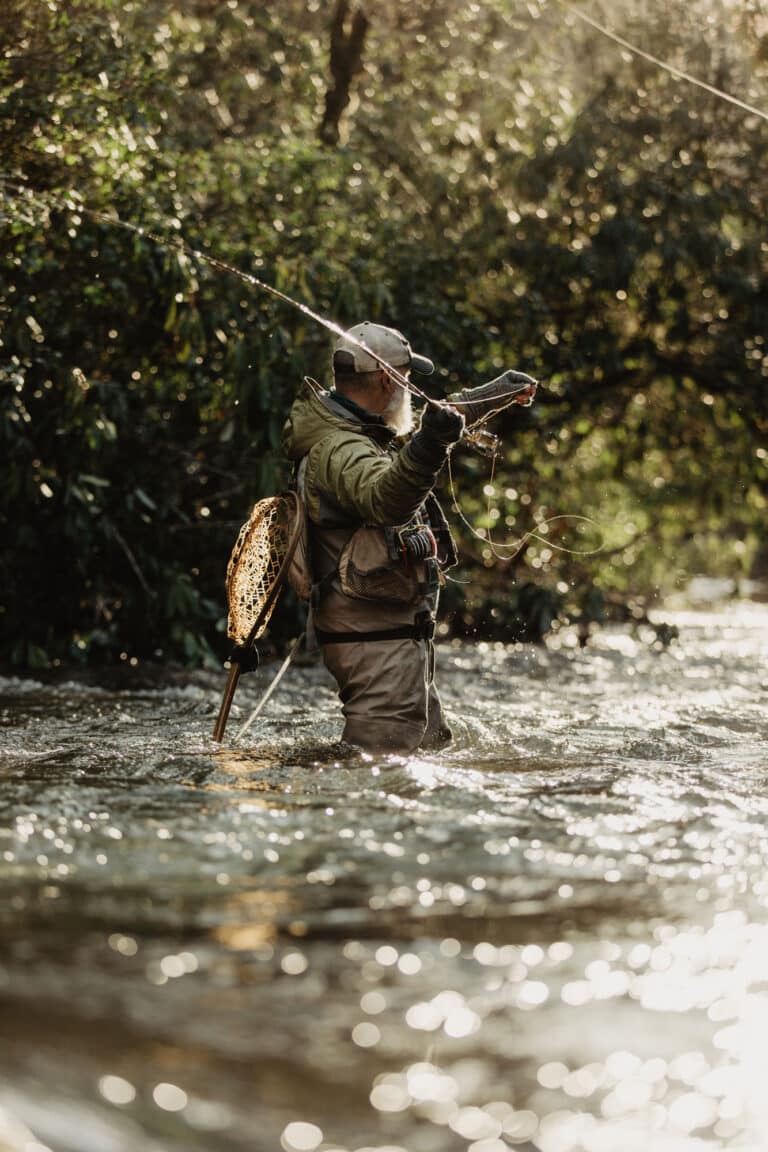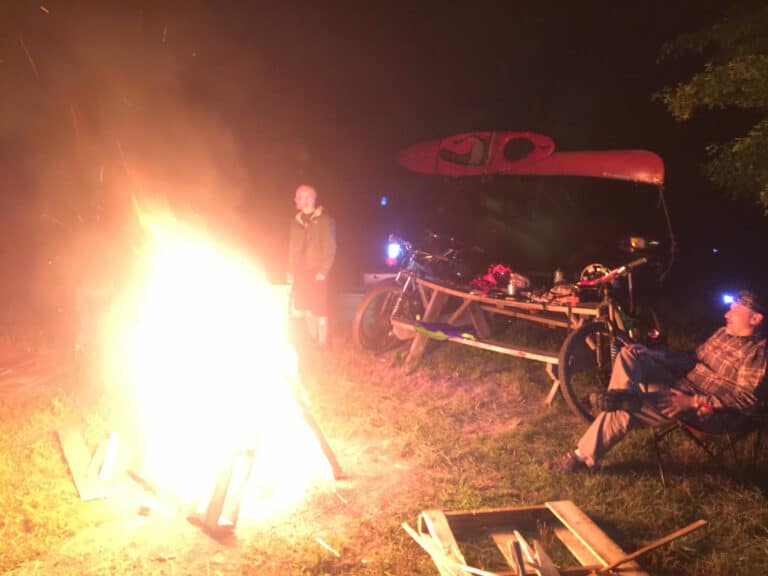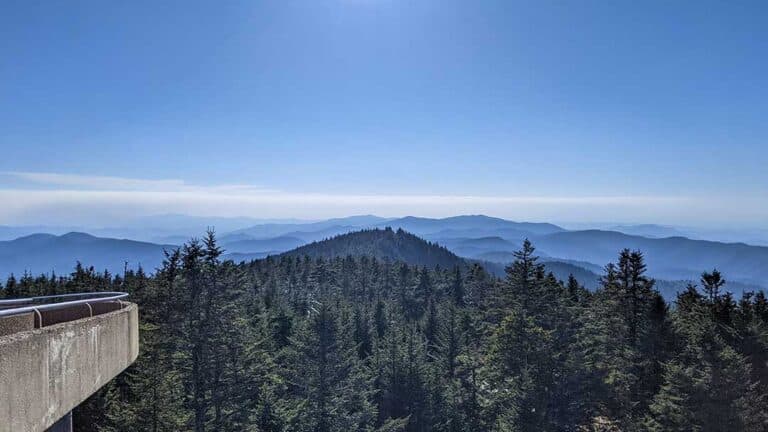Asheville, N.C. is home base for a kayaking school where girls rule and boys…well, boys simply aren’t allowed. Ontario native Anna Levesque is world-renowned kayaker, yoga instructor, and founder of the kayaking school Girls At Play. After nearly five years touring as a sponsored Dagger boater and competing around the world as a member of the Canadian Freestyle Team, Levesque realized that there was another facet of kayaking she had yet to explore: instruction. In the early 2000s, Levesque was one of only a handful of professional female kayakers, but she had already begun to notice some fundamental differences between men and women regarding paddling techniques and attitudes. After sifting through a kayaking instructional manual that featured only a few photographs of women paddling, Levesque says she was finally inspired to take a break from the pro circuit and invest in a new endeavor.
“When I started kayaking, the standard was that you needed to act like a man to be a good kayaker,” Levesque says. “I was on tour with some of the best kayakers in the world, but I really struggled with my confidence because I didn’t feel supported.”
When Levesque consulted with other female paddlers, she realized that there was consensus among her fellow athletes: men and women paddle differently. With the help of longtime friend and kayak instructor Ken Whiting and his videographer Chris Emerick, Levesque created the first Girls At Play instructional DVD, which focused on freestyle technique for the ladies. When she premiered the DVD at the nation’s first Whitewater Symposium in 2003, the audience’s response was more than positive; in fact, she received a standing ovation.
“It was a proud moment for me,” she says. “I knew that I was really onto something, like I was providing a new paradigm.”
The Girls At Play concept took off. Levesque toured the country, offering clinics for women and promoting her DVD. The turnout was spectacular, averaging around 30 women per session, which was an unheard of attendance rate at that time for the predominately male world of whitewater. Levesque says that for women, the most attractive part of her clinics is the supportive group dynamic. She says many male kayakers, particularly at the professional level, are sometimes physically aggressive in their pursuits and can come across as intimidating to an up-and-coming female athlete.
“Women tend to hang back and overanalyze consequences a little too much to where it can paralyze them from doing anything,” Levesque says. “Our decisions are emotion-based, and that’s why it’s so important to learn how to tap into your intuition.”
Fear has been one of Levesque’s biggest challenges, particularly in learning how to manage and sometimes overcome it while on the river. She says tapping into your instinct is something kayaking truly embodies and is a skill that can be translated into daily life.
“I believe the universe doesn’t put anything in front of us that we can’t handle,” she says, “and when things don’t work out like we thought, then there’s something in that experience for us to take away.”
Both trusting one’s intuition and embracing the present are values that Levesque teaches in her clinics. From the Main Salmon River in Idaho to rivers in Costa Rica and Nepal, Girls At Play offers more than just kayaking lessons (although a variety of those are offered on a two- and four-day basis). Women who want a true Girls At Play immersion can attend multi-day trips that incorporate kayaking, yoga, and culture, an experience that Levesque says attracts women of all ages and experience levels.
“Most of our clients are between the ages of 40 and 70,” she says. “People get this idea that the sport is only for young people, but there are new adventures to be had at any age.”
At 40 years old, Girls At Play alumna Claire Latowsky agrees with Levesque’s perspective on adventure. When she first met Levesque, Latowsky says she had very little kayaking experience but was drawn to the opportunities to travel with a group of inspiring women. Now, she has traveled with Girls At Play to Mexico, Costa Rica, and the Main Salmon and has attended multiple clinics based in Asheville.
“To run a river is a unique opportunity to see the area from a different perspective,” Latowsky says. “I have learned an incredible amount from the Girls At Play clinics and not just kayaking skills.”
Another Girls At Play alumna, Cindy Frost, a 40-year-old firefighter from Texas, has also returned for multiple trips, twice to Mexico, once to the Main Salmon, and a handful of times to the clinics in Asheville.
“Anna is superb at drawing parallels about the river and kayaking, which I use to ground myself off the river,” Frost says. “The confidence gained and friendships forged are amazing.”








